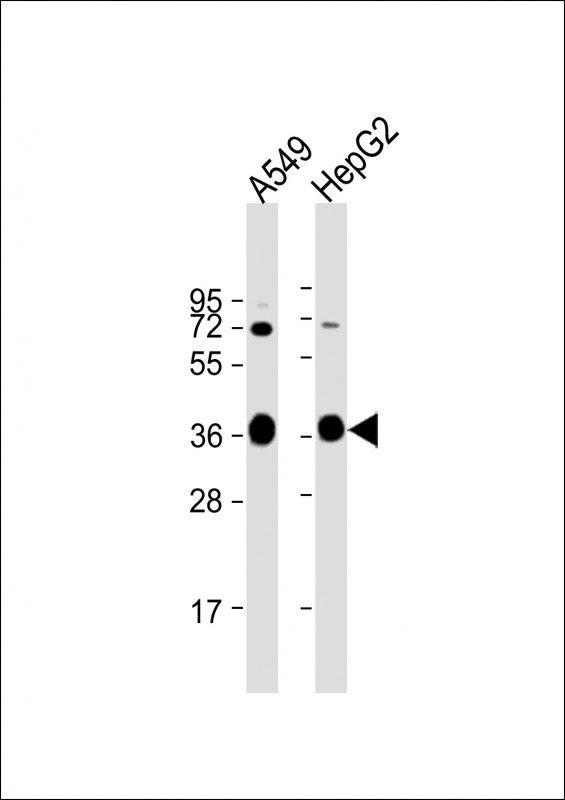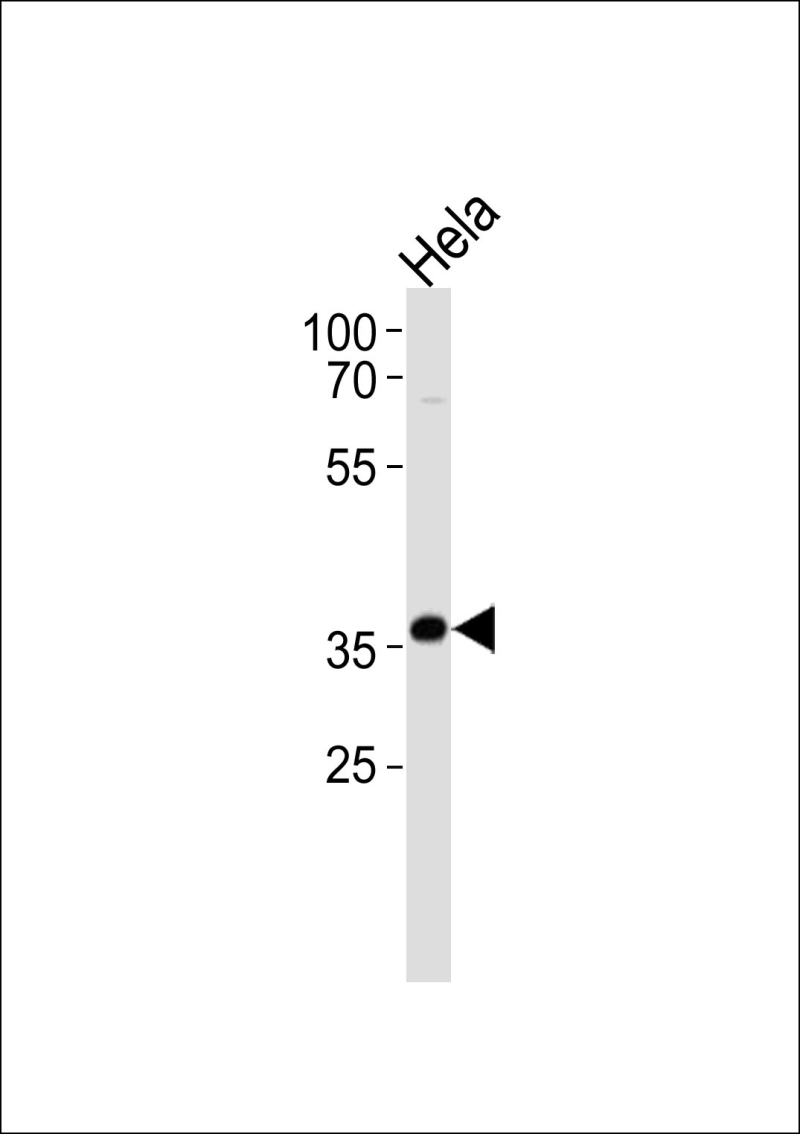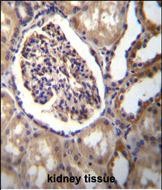


| WB | 1/1000 | Human,Mouse,Rat |
| IF | 咨询技术 | Human,Mouse,Rat |
| IHC | 1/100-1/500 | Human,Mouse,Rat |
| ICC | 技术咨询 | Human,Mouse,Rat |
| FCM | 咨询技术 | Human,Mouse,Rat |
| Elisa | 咨询技术 | Human,Mouse,Rat |
| Aliases | Aldo-keto reductase family 1 member C3, 1---, 17-beta-hydroxysteroid dehydrogenase type 5, 17-beta-HSD 5, 3-alpha-HSD type II, brain, 3-alpha-hydroxysteroid dehydrogenase type 2, 3-alpha-HSD type 2, Chlordecone reductase homolog HAKRb, Dihydrodiol dehydrogenase 3, DD-3, DD3, Dihydrodiol dehydrogenase type I, HA1753, Indanol dehydrogenase, Prostaglandin F synthase, PGFS, Testosterone 17-beta-dehydrogenase 5, Trans-1,2-dihydrobenzene-1,2-diol dehydrogenase, AKR1C3, DDH1, HSD17B5, KIAA0119, PGFS |
| Entrez GeneID | 8644 |
| WB Predicted band size | 36.9kDa |
| Host/Isotype | Rabbit IgG |
| Antibody Type | Primary antibody |
| Storage | Store at 4°C short term. Aliquot and store at -20°C long term. Avoid freeze/thaw cycles. |
| Species Reactivity | Human |
| Immunogen | This AKR1C3 antibody is generated from rabbits immunized with a KLH conjugated synthetic peptide between 107-135 amino acids from the Central region of human AKR1C3. |
| Formulation | Purified antibody in PBS with 0.05% sodium azide. |
+ +
以下是关于AKR1C3抗体的3篇参考文献(摘要内容已概括):
1. **文献名称**:*AKR1C3 as a biomarker and therapeutic target in prostate cancer*
**作者**:Hamid, A.R. et al.
**摘要**:研究证实AKR1C3在前列腺癌中高表达,其抗体通过免疫组化检测显示与去势抵抗性前列腺癌(CRPC)进展相关,并验证其作为治疗靶点的潜力(抑制可增强化疗敏感性)。
2. **文献名称**:*Immunohistochemical detection of AKR1C3 in endometrial cancer*
**作者**:Fujimura, T. et al.
**摘要**:开发高特异性AKR1C3单克隆抗体,用于子宫内膜癌组织检测,发现其表达与雌激素代谢异常相关,提示可作为预后标志物及激素靶向治疗依据。
3. **文献名称**:*AKR1C3-mediated drug resistance in acute myeloid leukemia*
**作者**:Matsunaga, T. et al.
**摘要**:通过抗体验证AKR1C3在AML细胞中的过表达,揭示其通过代谢化疗药物导致耐药,抗体阻断可恢复白血病细胞对柔红霉素的敏感性。
4. **文献名称**:*AKR1C3 antibody-based theranostics in solid tumors*
**作者**:Evans, K. et al.
**摘要**:研究利用AKR1C3抗体开发分子探针,在多种实体瘤模型中实现靶向成像,并探索抗体-药物偶联物(ADC)在AKR1C3高表达肿瘤中的治疗效果。
---
以上文献均聚焦AKR1C3抗体的应用场景(诊断、预后、治疗),覆盖前列腺癌、血液肿瘤及泛癌种研究,需根据具体研究方向选择。若需全文或补充DOI可进一步说明。
The AKR1C3 (aldo-keto reductase family 1 member C3) antibody is a crucial tool for studying the expression and function of the AKR1C3 enzyme, which belongs to the aldo-keto reductase superfamily. AKR1C3 plays a multifaceted role in steroid hormone metabolism, prostaglandin synthesis, and drug detoxification. It catalyzes the reduction of ketosteroids, including the conversion of androstenedione to testosterone and estrone to estradiol, influencing hormone-sensitive pathways. Overexpression of AKR1C3 has been implicated in various cancers, such as prostate, breast, and leukemia, where it contributes to tumor progression, chemoresistance, and intratumoral androgen synthesis.
AKR1C3 antibodies are widely used in research to detect protein levels via techniques like Western blotting, immunohistochemistry (IHC), and immunofluorescence. These antibodies help identify tissue-specific expression patterns and correlations with disease outcomes. In prostate cancer, AKR1C3 is linked to resistance to androgen-deprivation therapies, making its detection clinically relevant. Additionally, AKR1C3 antibodies aid in exploring therapeutic strategies, including enzyme inhibition or targeted degradation. Validation of antibody specificity is critical, as AKR1C3 shares high homology with other AKR1C isoforms. Recent studies also investigate its role in metabolic disorders and inflammation, expanding its biomedical significance.
×